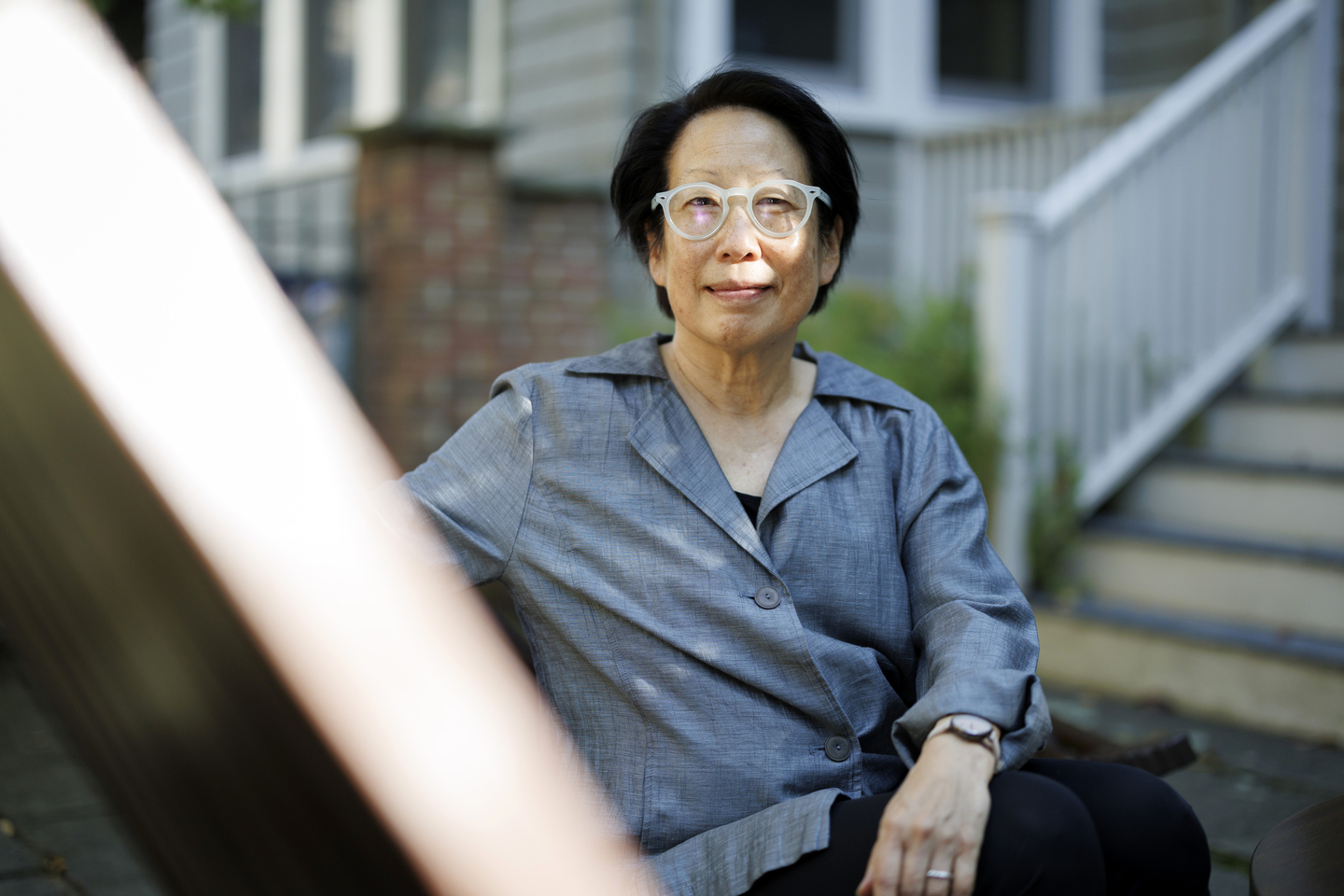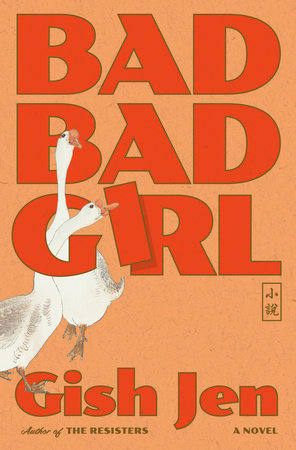
Gish Jen.
Stephanie Mitchell/Harvard Staff Photographer
How her life shaped mine
Gish Jen’s ties with her mother were important, difficult. She examines why in new novel, ‘Bad Bad Girl.’
Novelist Gish Jen shook her head when it became clear that many critics and readers assumed her 1991 debut, “Typical American,” about a child of Chinese immigrants in the U.S., was essentially autobiography.
More than three decades later, and in the wake of her mother’s death in 2020, Gen says she’s finally really tackled her family’s story — although somewhat reimagined.
“All these books are personal, but they’re not personal in the sense that that’s my mother, that’s my father,” said Jen. “They’re much more about my position in the world, and what I see and what I feel about it.”
Her just released novel, “Bad Bad Girl,” takes as its starting point the early life of a character based on her late mother, Loo Shu-hsin, and follows her through a thorny and complicated journey pursuing higher education in America, meeting Jen’s father, and building a life and family.
(Many characters share the names of those who served as inspirations, including Gish, whose given name was Lillian.)

Jen explores her mother’s upbringing in a wealthy Shanghainese family at a time when being born a girl came with certain expectations and firm limits. She also explores the difficult path her mother faced after leaving home, and the reverberations that impacted her own upbringing.
The mother and daughter have a constant dialogue underpinning the narrative. Jen imagines her mother seeing every word of the novel as it’s written, telling the story of her life. “Bad bad girl!” Jen writes as part of their imagined back and forth. “You should not write anything!”
“I had such a difficult relationship with my mother, and I could actually talk to her about it on the page in a way that I never could in real life,” Jen said. “Even in my imagination, she remains frustrating, in a way that was very true to life. Weirdly she did still seem alive.”
“I had such a difficult relationship with my mother, and I could actually talk to her about it on the page in a way that I never could in real life.”
Gish Jen
The book is partially set against the political backdrop of the second Sino-Japanese war followed by the Communist revolution. Jen uses letters between America and the extended family back in China to capture snapshots of the worsening strife.
The letters are, in part, inspired by real missives unearthed between her mother and grandmother. In them, Jen said, she found a tense and complicated dynamic not unlike their own.
“Those letters did not surface until after my mother’s death,” she said. “I was just shocked, although it explained a lot about my relationship with my mother when I saw what her relationship with her mother had been.”
In researching the novel, Jen said she traveled to places significant to her mother across Shanghai. Teaching at NYU Shanghai at the time, she talked to locals and got a sense for what the atmosphere was like in the 1930s.
“I found the school that she had attended. I traipsed all over Shanghai. I traipsed all over Huchen, which is the town where my grandfather had come from. I talked to everybody that I could talk to,” she said.
Part of her motivation for writing the book, Jen said, was to preserve this history for her children and grandchildren.
But also, she said, to honor the struggles faced by her mother and other Chinese women of the time. In “Bad Bad Girl,” Jen writes this as her mother is repeatedly being told that because of her ambition and smarts, it’s too bad she was born a girl.
“My mother was a brilliant woman,” she said during an interview. “And at Harvard there are many, many brilliant women. In this day and age, it’s a little hard for them to even grasp how many women there were like them who were not able to do anything like what they will be able to do. And of course, it’s not just true of my own mother — that’s true of a whole generation.”
“In this day and age, it’s a little hard for them to even grasp how many women there were like them who were not able to do anything like what they will be able to do.”
Gish Jen
Jen herself has been successful in her intellectual endeavors. She has published novels, collections of short fiction, and books of nonfiction.
She graduated from Radcliffe College with an A.B. in English in 1977 and went on to earn an M.F.A. in fiction from the Iowa Writers’ Workshop. She was also a 2001-2002 Radcliffe fellow in fiction and poetry. All that, she said, despite her mother — both in real life and in the book — disagreeing with her choice of career.
“And here I am, 10 books,” she said. “So there you go.”
Moreover, Jen said, she thinks she was able to use her writing, as much as it may have displeased her mother, to capture their difficult dynamic — warts and all.
“She would not have liked it because of all the warts,” Jen said. “But I think it’s very sympathetic. And that sympathy is very genuine.”




